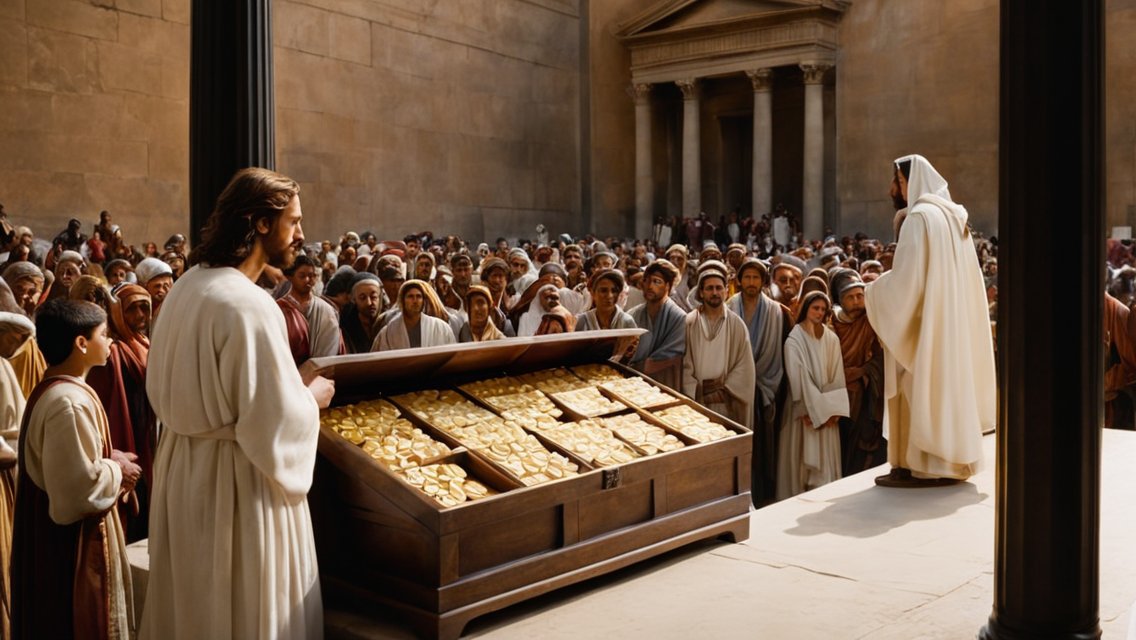Thirty-first Sunday Homily of the Ordinary Time – Year B
Readings: Deut 6:2-6, Heb 7:23-28, Mk 12: 28-34
Bible Verses: Bible Quotations that Emphasize the Love of God and love of Neighbor
Moral Story: The Wise Elder and the Two Brothers – Moral Story For Life
1st Reading – Deuteronomy 6:2-6
Moses spoke to the people, saying:
2 “Fear the LORD, your God, and keep, throughout the days of your lives, all his statutes and commandments which I enjoin on you, and thus have long life.
3 Hear then, Israel, and be careful to observe them, that you may grow and prosper the more, in keeping with the promise of the LORD, the God of your fathers, to give you a land flowing with milk and honey.
4 “Hear, O Israel! The LORD is our God, the LORD alone!
5 Therefore, you shall love the LORD, your God, with all your heart, and with all your soul, and with all your strength.
6 Take to heart these words which I enjoin on you today.”
Responsorial Psalm – Psalms 18:2-3, 3-4, 47, 51
R. (2) I love you, Lord, my strength.
2 I love you, O LORD, my strength,
3A O LORD, my rock, my fortress, my deliverer.
R. I love you, Lord, my strength.
3B My God, my rock of refuge,
my shield, the horn of my salvation, my stronghold!
4 Praised be the LORD, I exclaim,
and I am safe from my enemies.
R. I love you, Lord, my strength.
47 The LORD lives! And blessed be my rock!
Extolled be God my savior.
51 You who gave great victories to your king
and showed kindness to your anointed.
R. I love you, Lord, my strength.
2nd Reading – Hebrews 7:23-28
Brothers and sisters:
23 The levitical priests were many because they were prevented by death from remaining in office,
24 but Jesus, because he remains forever, has a priesthood that does not pass away.
25 Therefore, he is always able to save those who approach God through him, since he lives forever to make intercession for them.
26 It was fitting that we should have such a high priest: holy, innocent, undefiled, separated from sinners, higher than the heavens.
27 He has no need, as did the high priests, to offer sacrifice day after day, first for his own sins and then for those of the people; he did that once for all when he offered himself.
28 For the law appoints men subject to weakness to be high priests, but the word of the oath, which was taken after the law, appoints a son, who has been made perfect forever.
Alleluia – John 14:23
R. Alleluia, alleluia.
23 Whoever loves me will keep my word, says the Lord;
and my father will love him and we will come to him.
R. Alleluia, alleluia.
Gospel – Mark 12:28B-34
28B One of the scribes came to Jesus and asked him, “Which is the first of all the commandments?”
29 Jesus replied, “The first is this: Hear, O Israel! The Lord our God is Lord alone!
30 You shall love the Lord your God with all your heart, with all your soul,
with all your mind, and with all your strength.
31 The second is this: You shall love your neighbor as yourself. There is no other commandment greater than these.”
32 The scribe said to him, “Well said, teacher. You are right in saying, ‘He is One and there is no other than he.’
33 And ‘to love him with all your heart, with all your understanding, with all your strength, and to love your neighbor as yourself’ is worth more than all burnt offerings and sacrifices.”
34 And when Jesus saw that he answered with understanding, he said to him, “You are not far from the kingdom of God.” And no one dared to ask him any more questions.
Moral Story for 31st Sunday Homily of the Ordinary Time Year b
Once upon a time, in a small village, there lived two brothers, Daniel and Samuel. Daniel was known for his generosity and kindness, always helping others without expecting anything in return. Samuel, on the other hand, was more self-centered, seeking personal gain in all his actions. Read . . .
Add Some Religious Jokes To Your Homily
Add Some Bible Verses To Your Homily
| Bible Verses on Love of God | Bible Verses on Good Shepherd |
| Bible Verses on Servant | Bible Verses on Eternal Life |
| Bible Verses on Marriage | Bible Verses on Inner Sight |
| More Bible Verses | More Bible Verses |
Homily
One Commandment, One Love
“You must love the Lord your God with all your heart …
and your neighbour as yourself ” (Mk)
One winter, when Gandhiji was busy with the freedom struggle, a little girl was left abandoned beside his Sabarmati ashram. Seeing her plight, Gandhiji asked the inmates to give her food and shelter. He then left for a long trip. On returning, he asked the caretaker, “Have you taken good care of that little girl?” “Yes!” replied the caretaker pointing to the girl asleep under a blanket. Gandhiji asked the man, “How many blankets do you use?” The caretaker replied, “Two!” Gandhiji then queried, “How is it that you have two blankets and have given this child only one?”
For holy people like Gandhiji and Mother Teresa there was no dichotomy between love of God and of neighbour. Each love led to the other, fed the other. Today’s gospel speaks of the inseparable bond between these two loves that are, actually, only one love. Let’s examine this ‘love commandment’ in the light of the first reading.
The second paragraph of the first reading consists of the popular ‘Shema, Israel’ or ‘Hear, Israel!’ invocation that became the daily Jewish prayer. The reading begins with an exhortation to the Israelites to obey God’s commandments, first among which was “Love God with all your heart, with all your soul and with all your strength.” In Hebraic thought, heart, soul and strength do not mean separate human faculties but the person in the totality of her/his being. In sum, the believer was to cling to God in undivided love.
The refrain to the responsorial psalm (18) forms a fitting response to the mandate contained in the Shema: “i love you, Lord, my strength.”
Jesus takes the ‘love commandment’ to a higher plane by juxtaposing two passages that speak about love. First, he quotes from the first reading about love of God (Deut 6:5); second, he ties this to the love of neighbour (Lev 19:18): “You must love your neighbour as yourself!” Jesus means that love of God is a farce if it doesn’t lead to love of neighbour, and love of neighbour is refined self-love if it doesn’t spring from love of God.
Jesus’ apostles constantly stress this love commandment in the New Testament. John writes, “lf someone says s/he loves God and hates her/his brother. s/he is a liar; for s/he who does not love her/his brother who s/he has seen, cannot love God whom s/he has not seen” (l in 4:20). So also James calls this commandment, a “royal law” and stresses: “faith without works is dead” (lam 2:8, 17, 26).
Note that when Jesus talks about ‘neighbour’ it is not only the one living next-door, but also the one by the roadside, robbed, beaten and forsaken as in the ‘parable of the Good Samaritan’ (Lk 10:29-37). What is my attitude to my ‘neighbour‘ – sick and suffering, poor and powerless, friendless and forsaken?
Many Christians have successfully translated their love of God into concrete love of the neighbour. Their love was not merely a patronizing kind of charity, but a total identification with the poor. For example, by serving the lepers in Molokai, Fr Damien de Veuster himself died of leprosy in 1889. Today, the work of Mother Teresa’s ‘Missionaries of Charity’ too speaks volumes of such love.
When believers of different religions discuss about God, there is often conflict since everyone seeks to prove that one’s God is greater than the other’s gods. However, when this love of God is translated into concrete works of love, people of different religions can unite and work concertedly for progress and peace. Love unites.
People like Muhammad Yunus of Bangladesh, winner of the 2006 Nobel Peace Prize prove that love for neighbour can take diverse forms. His ‘Grameen Bank’ reaches out to about 6.6 billion borrowers from 70,000 Bangladeshi villages 97% of whom are women. How can i make my love for God fruitful by serving my neighbour? Remember, these are not two, but one love!









